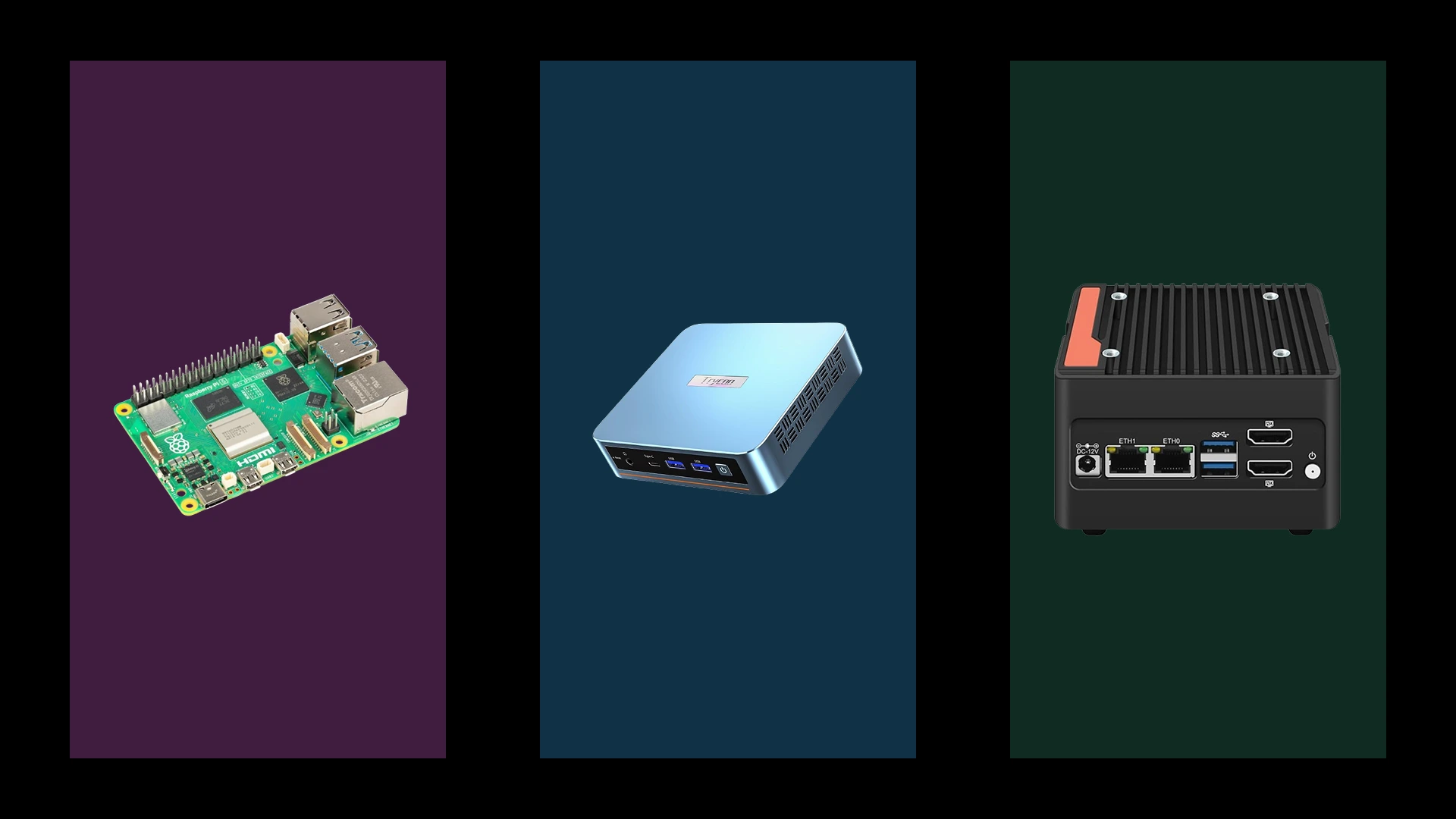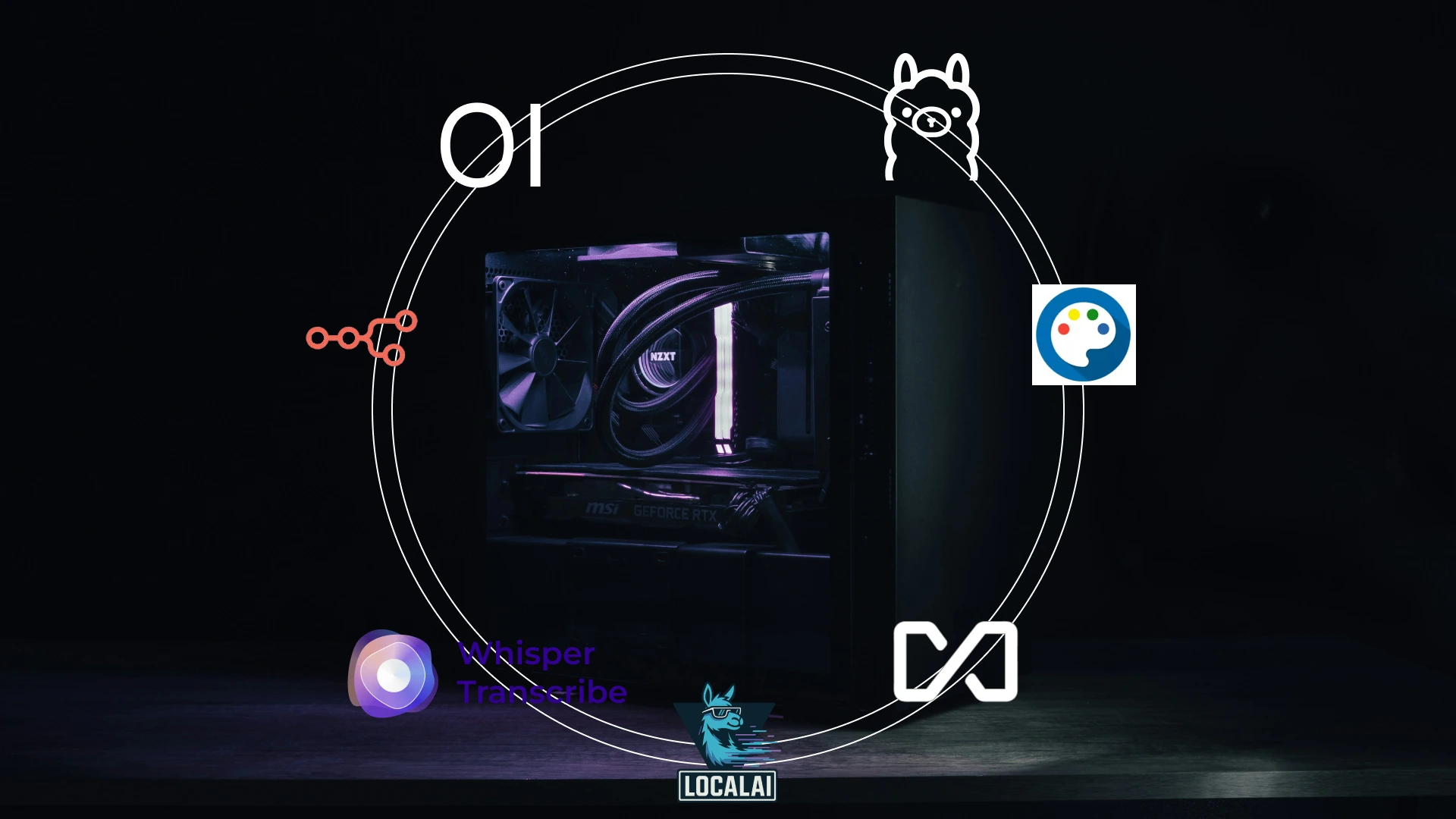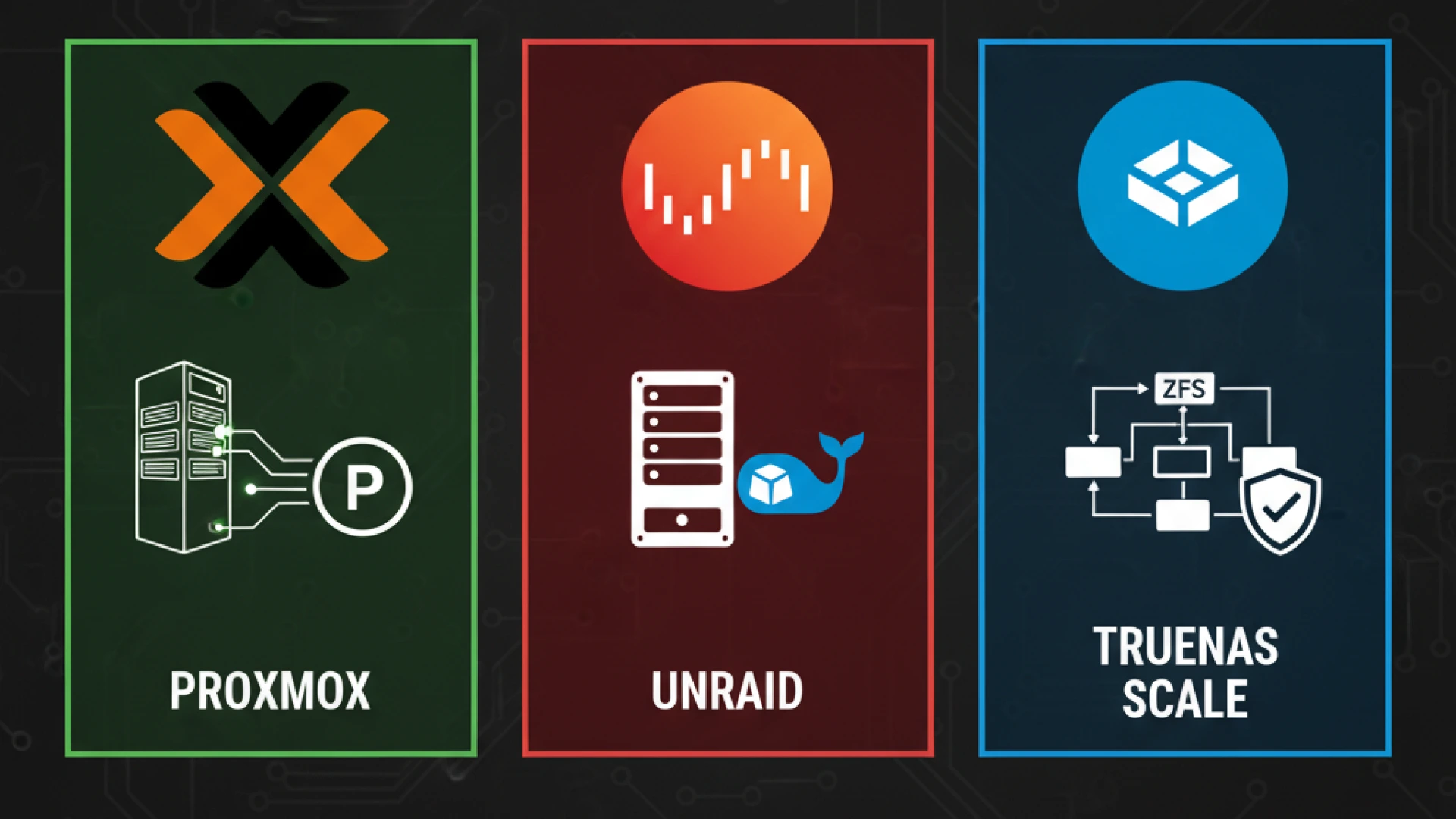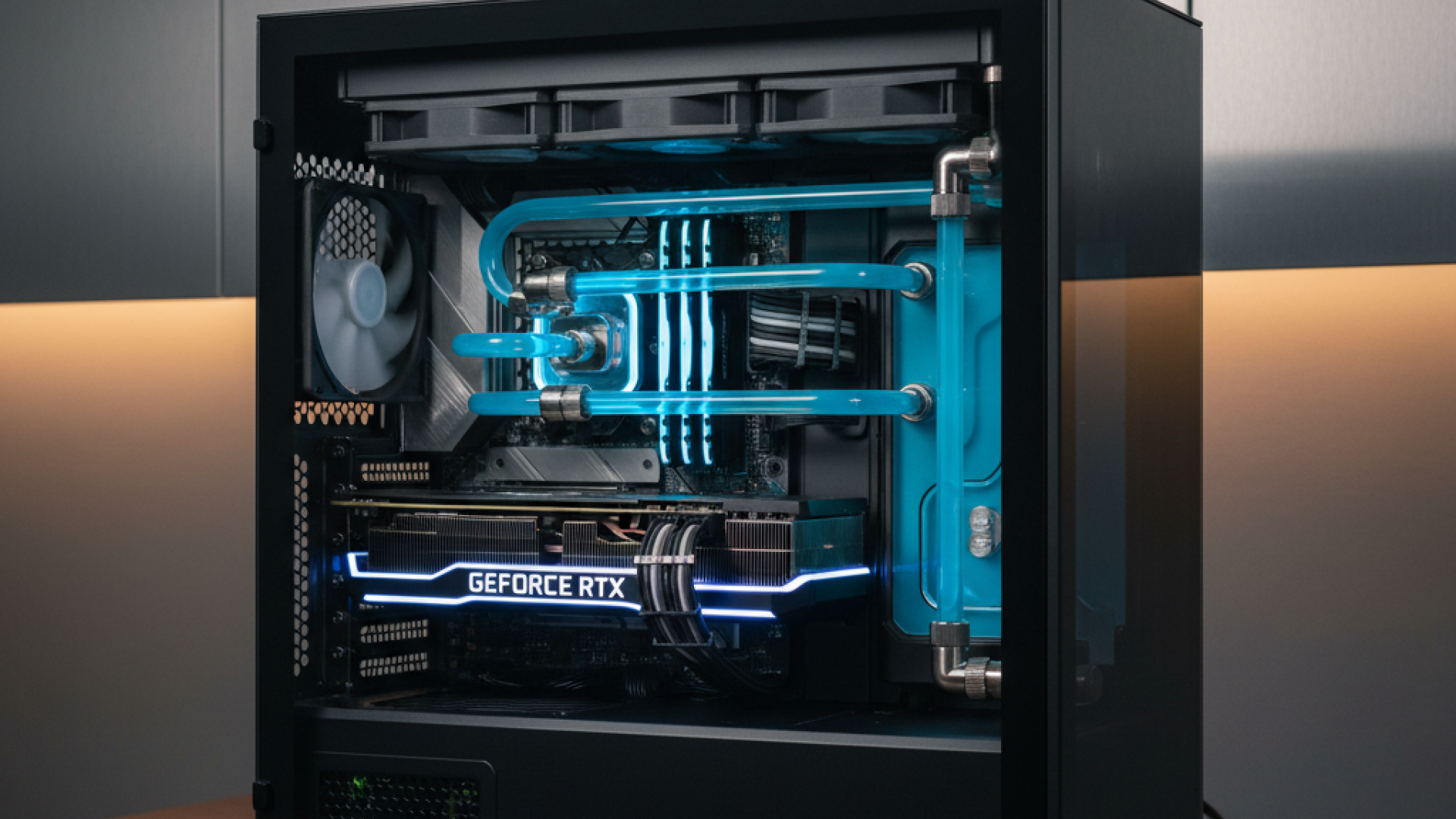In my previous post, How I Automated My Homelab with ChatGPT-5. I used ChatGPT-5 to generate scripts to monitor my homelab setup, with real-time system failure alerts sent directly to my Slack app. This gave me instant visibility into what was happening in my homelab. With alerts in place, I proceed with automating the fixing of identified problems. In this post, the focus will be on how I automated fixes in my homelab with ChatGPT-5. This serves as a continuation of the previous post.
Getting notified about issues is the first step forward. It turned out that many of the issues my homelab was experiencing frequently were problems that could be easily fixed via automation. Docker containers crashing due to memory leaks, disk space filling up, network connectivity hiccups, or VM resource constraints. I often found myself applying the same fixes repeatedly and restarting services, clearing logs, reallocating resources.
The solution was to run automated scripts on the server that help with the minor issues. Instead of repeating the same fixes over and over, I decided to automate my homelab using ChatGPT-5. I developed an automated fix framework that acts as a triage system. When an issue is detected, the system first determines if it can be safely resolved automatically by restarting a crashed container or clearing temporary files, or if it requires human intervention, like handling hardware failures or complex configuration issues.
The goal is a homelab that can self-heal common ailments, including restarting a frozen Docker container, reclaiming disk space from a log file, or rebooting a unresponsive VM, freeing me to focus on the bigger and more interesting problems.
The Framework for Automation
The leap to automated fixes in my homelab with ChatGPT-5 required a robust, intelligent, and safe framework. The goal wasn’t to build a reckless “auto-clicker” that blindly executes commands, but rather a thoughtful system that could diagnose issues, determine the right course of action, and execute pre-approved fixes, all while maintaining system integrity.
Tools & Workflow
At its core, ChatGPT-5 acts as the decision-making engine, accessed via API calls embedded in Python scripts. These scripts analyse system states, logs, and alerts, then determine the safest response. The actual execution layer is powered by Bash and Python scripts, with Ansible managing multi-step orchestration across Docker containers and VMs, and cron handling lightweight, time-based checks.
The workflow follows a structured four-stage pipeline:
- Detection → The monitoring agent from Part 1 identifies an issue (e.g., “Nextcloud container is down”) and sends an alert to Slack.
- Analysis → A listener process captures the Slack alert and forwards the relevant details to the ChatGPT-5 API, which evaluates logs, resource usage, and error patterns to classify the issue.
- Fix → Depending on the analysis, the system either:
- Executes a pre-written remediation script for known, safe issues.
- Requests human approval before proceeding with potentially risky actions.
- Escalates directly if human intervention is mandatory.
- Verification → After a fix is applied, a follow-up health check verifies that the issue is resolved, and a detailed report is sent back to Slack for transparency.
This pipeline transforms my homelab into a proactive, intelligent problem-solving system.
Error Categorisation System
At the heart of the framework is an intelligent error categorisation system. Every detected issue is sorted into one of three categories:
- Safe-to-Automate → Low-risk, routine problems are handled instantly. Examples include restarting a crashed Docker container, clearing a full
/tmpdirectory, or rebooting an unresponsive VM. - Requires Approval → Actions with a potential system-wide impact, such as applying configuration changes, running updates, or modifying firewall rules, are queued for review. The system sends me a Slack notification containing the proposed fix and a one-click “Approve” button.
- Human-Only → Critical issues like suspected hardware failures, potential security breaches, or data integrity problems bypass automation entirely and trigger immediate admin alerts.
This tiered approach ensures automation remains safe, predictable, and controlled.
Safety Nets
Automating fixes without safeguards is a recipe for disaster, so the framework incorporates multiple layers of protection:
- Backups are sacrosanct → They’re never touched by automated scripts.
- Dry-run modes → New scripts first simulate actions without making changes, logging intended operations for review.
- Idempotent scripts → Fixes are designed to be safe to rerun without side effects.
- Approval workflows → Significant changes always require human confirmation.
- Audit trails → Every automated action is logged with full context for easy debugging and historical tracking.
These safety nets allow me to trust automation without surrendering control.
By combining ChatGPT-5’s decision-making capabilities with a structured workflow, intelligent error categorisation, and multiple safeguards, this framework turns my homelab into a self-healing infrastructure. Routine issues are resolved instantly, risky operations are reviewed before execution, and critical problems are escalated to me only when necessary.
This isn’t just automation, it’s intelligent, responsible automation.
Implementation of the Homelab Automation system
I will focus more on the scripts I use to automate my homelab.
Step 1: System Setup and Prerequisites
Create the directory structure and install dependencies:
# Create directory structure
sudo mkdir -p /opt/homelab-ai/{scripts,config,logs,backups,snapshots}
sudo chown $USER:$USER /opt/homelab-ai -R
chmod 755 /opt/homelab-ai
# Install system dependencies
sudo apt update && sudo apt install python3-pip python3-venv curl jq
# Set up Python virtual environment
cd /opt/homelab-ai
python3 -m venv venv
source venv/bin/activate
pip install openai requests pathlib python-dotenv psutilStep 2: Configuration Setup
Create the environment configuration:
Note: the OPENAI_API_KEY and SLACK_WEBHOOK_URL should be replaced with your actual api key and Slack URL. Get your Slack URL from here
# Install encryption dependencies
sudo apt install gnupg2
# Create encrypted configuration
cat > /opt/homelab-ai/config/secrets.txt << 'EOF'
OPENAI_API_KEY=your_api_key_here
SLACK_WEBHOOK_URL=https://hooks.slack.com/services/YOUR/SLACK/WEBHOOK
EOF
# Encrypt the secrets file
gpg --symmetric --cipher-algo AES256 /opt/homelab-ai/config/secrets.txt
mv /opt/homelab-ai/config/secrets.txt.gpg /opt/homelab-ai/config/.secrets.enc
# Remove plaintext file
rm /opt/homelab-ai/config/secrets.txt
# Create regular configuration
cat > /opt/homelab-ai/config/.env << 'EOF'
# System Parameters (non-sensitive)
MAX_RESTARTS=3
DISK_CRITICAL_PERCENT=90
DISK_WARNING_PERCENT=80
LOG_RETENTION_DAYS=14
NETWORK_INTERFACE=ens18 # Change to your interface (use 'ip a' to find)
BACKUP_RETENTION_DAYS=7
CONTAINER_RESTART_COOLDOWN=300 # 5 minutes between restarts
AUTO_MODEL_DETECTION=true
PREFERRED_MODEL_PRIORITY=gpt-4,gpt-3.5-turbo,gpt-3.5-turbo-16k
EOFCreate Decryption Helper Script
cat > /opt/homelab-ai/scripts/decrypt_secrets.py << 'EOF'
#!/usr/bin/env python3
"""
Secure secrets decryption utility
"""
import subprocess
import os
import tempfile
from pathlib import Path
class SecureConfig:
def __init__(self, enc_file="/opt/homelab-ai/config/.secrets.enc"):
self.enc_file = enc_file
self.secrets = {}
self.passphrase_file = "/opt/homelab-ai/config/.passphrase"
def load_secrets(self):
"""Load and decrypt secrets from .enc file"""
if not os.path.exists(self.enc_file):
print("Encrypted secrets file not found, running without API keys")
return {}
try:
# Try to get passphrase from environment or file
passphrase = os.getenv("HOMELAB_PASSPHRASE")
if not passphrase and os.path.exists(self.passphrase_file):
with open(self.passphrase_file, 'r') as f:
passphrase = f.read().strip()
if not passphrase:
print("No passphrase available, running without encrypted secrets")
return {}
# Decrypt secrets
with tempfile.NamedTemporaryFile(mode='w', delete=False) as temp_pass:
temp_pass.write(passphrase)
temp_pass.flush()
result = subprocess.run([
'gpg', '--batch', '--yes', '--decrypt',
'--passphrase-file', temp_pass.name,
self.enc_file
], capture_output=True, text=True)
os.unlink(temp_pass.name)
if result.returncode == 0:
# Parse decrypted content
for line in result.stdout.splitlines():
if '=' in line and not line.startswith('#'):
key, value = line.strip().split('=', 1)
self.secrets[key] = value
os.environ[key] = value # Set in environment
print(f"Successfully loaded {len(self.secrets)} encrypted secrets")
return self.secrets
else:
print(f"Failed to decrypt secrets: {result.stderr}")
return {}
except Exception as e:
print(f"Error loading encrypted secrets: {e}")
return {}
def get_secret(self, key, default=None):
"""Get a specific secret"""
return self.secrets.get(key, default)
if __name__ == "__main__":
config = SecureConfig()
secrets = config.load_secrets()
print(f"Loaded secrets: {list(secrets.keys())}")
EOF
chmod +x /opt/homelab-ai/scripts/decrypt_secrets.pyStep 3: Enhanced Master AI Engineer Script with Dynamic Model Detection
Create the main monitoring and remediation script with your security and model detection features:
First, navigate to the scripts folder
cd /opt/homelab-ai/scriptsThen, create a homelab_ai_engineer.py file using the following
touch homelab_ai_engineer.pyPaste the following code into the file and save it.
#!/usr/bin/env python3
"""
Enhanced Homelab AI Engineer - Master Monitoring & Remediation Script
Features encrypted secrets, dynamic model detection, and intelligent analysis
"""
import subprocess
import requests
import os
import json
import time
import psutil
from pathlib import Path
from datetime import datetime, timedelta
from collections import defaultdict
# Try to import OpenAI, gracefully degrade if not available
try:
from openai import OpenAI
OPENAI_AVAILABLE = True
except ImportError:
OPENAI_AVAILABLE = False
from dotenv import load_dotenv
# Load our custom secure config
import sys
sys.path.append('/opt/homelab-ai/scripts')
from decrypt_secrets import SecureConfig
# ===== CONFIGURATION =====
env_path = Path("/opt/homelab-ai/config/.env")
load_dotenv(dotenv_path=env_path)
# Load encrypted secrets
secure_config = SecureConfig()
secrets = secure_config.load_secrets()
SLACK_WEBHOOK = secrets.get("SLACK_WEBHOOK_URL") or os.getenv("SLACK_WEBHOOK_URL")
OPENAI_API_KEY = secrets.get("OPENAI_API_KEY") or os.getenv("OPENAI_API_KEY")
# System Parameters
MAX_RESTARTS = int(os.getenv("MAX_RESTARTS", "3"))
DISK_CRITICAL_PERCENT = int(os.getenv("DISK_CRITICAL_PERCENT", "90"))
DISK_WARNING_PERCENT = int(os.getenv("DISK_WARNING_PERCENT", "80"))
LOG_RETENTION_DAYS = int(os.getenv("LOG_RETENTION_DAYS", "14"))
NETWORK_INTERFACE = os.getenv("NETWORK_INTERFACE", "ens18")
CONTAINER_RESTART_COOLDOWN = int(os.getenv("CONTAINER_RESTART_COOLDOWN", "300"))
AUTO_MODEL_DETECTION = os.getenv("AUTO_MODEL_DETECTION", "true").lower() == "true"
PREFERRED_MODEL_PRIORITY = os.getenv("PREFERRED_MODEL_PRIORITY", "gpt-4,gpt-3.5-turbo,gpt-3.5-turbo-16k").split(",")
LOG_FILE = "/opt/homelab-ai/logs/ai_engineer.log"
RESTART_COUNTER_FILE = "/opt/homelab-ai/logs/restart_counts.json"
MODEL_CACHE_FILE = "/opt/homelab-ai/logs/available_models.json"
# Initialize OpenAI client if available
openai_client = None
current_model = None
available_models = []
# =========================
def detect_available_models():
"""Detect available OpenAI models and cache results"""
global openai_client
if not openai_client:
log("OpenAI client not available for model detection")
return []
# Check cache first (refresh every hour)
cache_file = Path(MODEL_CACHE_FILE)
if cache_file.exists():
try:
cache_age = time.time() - cache_file.stat().st_mtime
if cache_age < 3600: # 1 hour cache
with open(cache_file, 'r') as f:
cached_data = json.load(f)
log(f"Using cached model list: {cached_data['models']}")
return cached_data['models']
except Exception as e:
log(f"Error reading model cache: {e}", level="WARNING")
try:
log("Detecting available OpenAI models...")
models_response = openai_client.models.list()
# Filter for GPT models
gpt_models = []
for model in models_response.data:
model_id = model.id.lower()
if any(gpt_type in model_id for gpt_type in ['gpt-4', 'gpt-3.5']):
gpt_models.append(model.id)
# Cache the results
cache_data = {
"timestamp": time.time(),
"models": gpt_models
}
os.makedirs(os.path.dirname(MODEL_CACHE_FILE), exist_ok=True)
with open(MODEL_CACHE_FILE, 'w') as f:
json.dump(cache_data, f, indent=2)
log(f"Detected {len(gpt_models)} available GPT models: {gpt_models}")
return gpt_models
except Exception as e:
log(f"Failed to detect available models: {e}", level="ERROR")
return []
def select_best_model():
"""Select the best available model based on priority"""
global available_models, PREFERRED_MODEL_PRIORITY
if not available_models:
log("No models available, using default")
return "gpt-3.5-turbo"
# Find the first available model from our priority list
for preferred_model in PREFERRED_MODEL_PRIORITY:
preferred_model = preferred_model.strip()
# Check exact match first
if preferred_model in available_models:
log(f"Selected model: {preferred_model} (exact match)")
return preferred_model
# Check partial match (for model variations)
for available_model in available_models:
if preferred_model in available_model:
log(f"Selected model: {available_model} (partial match for {preferred_model})")
return available_model
# Fallback to first available model
selected = available_models[0]
log(f"Selected model: {selected} (fallback - first available)")
return selected
def log(message, level="INFO", alert=False):
"""Enhanced logging with levels and optional Slack alerts"""
timestamp = datetime.now().strftime("%Y-%m-%d %H:%M:%S")
log_entry = f"[{timestamp}] [{level}] {message}"
# Write to file
os.makedirs(os.path.dirname(LOG_FILE), exist_ok=True)
with open(LOG_FILE, "a") as f:
f.write(log_entry + "\n")
# Print to console for manual runs
print(log_entry)
if alert:
send_slack_alert(f"🔔 *{level}:* {message}")
def send_slack_alert(message, blocks=None):
"""Send rich messages to Slack with error handling"""
if not SLACK_WEBHOOK:
log("Slack webhook not configured - alert not sent", level="WARNING")
return False
payload = {"text": message}
if blocks:
payload["blocks"] = blocks
try:
response = requests.post(SLACK_WEBHOOK, json=payload, timeout=10)
if response.status_code == 200:
log("Slack alert sent successfully")
return True
else:
log(f"Slack alert failed with status {response.status_code}", level="WARNING")
return False
except Exception as e:
log(f"Failed to send Slack alert: {e}", level="ERROR")
return False
def run_cmd(cmd, timeout=30, capture_output=True):
"""Enhanced command execution with better error handling"""
try:
if capture_output:
result = subprocess.run(cmd, shell=True, capture_output=True, text=True, timeout=timeout)
return result.returncode, result.stdout, result.stderr
else:
result = subprocess.run(cmd, shell=True, timeout=timeout)
return result.returncode, "", ""
except subprocess.TimeoutExpired:
return -1, "", f"Command timed out after {timeout} seconds"
except Exception as e:
return -1, "", str(e)
def load_restart_counts():
"""Load container restart counts from persistent storage"""
try:
if os.path.exists(RESTART_COUNTER_FILE):
with open(RESTART_COUNTER_FILE, 'r') as f:
data = json.load(f)
# Clean old entries (older than 24 hours)
current_time = datetime.now().timestamp()
cleaned_data = {}
for container, info in data.items():
if current_time - info.get('last_restart', 0) < 86400: # 24 hours
cleaned_data[container] = info
return cleaned_data
except Exception as e:
log(f"Error loading restart counts: {e}", level="WARNING")
return {}
def save_restart_counts(counts):
"""Save container restart counts to persistent storage"""
try:
os.makedirs(os.path.dirname(RESTART_COUNTER_FILE), exist_ok=True)
with open(RESTART_COUNTER_FILE, 'w') as f:
json.dump(counts, f, indent=2)
except Exception as e:
log(f"Error saving restart counts: {e}", level="ERROR")
def analyze_failure_deterministic(container_name, logs=""):
"""Enhanced rule-based failure analysis with detailed categorization"""
if not logs:
exitcode, logs, _ = run_cmd(f"docker logs {container_name} --tail 30 2>&1")
if exitcode != 0:
logs = "Could not retrieve container logs"
logs_lower = logs.lower()
# Memory-related issues
if any(term in logs_lower for term in ["out of memory", "oom killed", "killed", "memory"]):
return {
"cause": "Container terminated due to memory exhaustion",
"action": "Increase container memory limits or investigate memory leaks",
"category": "auto_fix",
"confidence": 0.9
}
# Permission issues
elif any(term in logs_lower for term in ["permission denied", "access denied", "forbidden"]):
return {
"cause": "File or directory permission problem",
"action": "Check file permissions, user mappings, and volume mounts",
"category": "request_permission",
"confidence": 0.8
}
# Network connectivity issues
elif any(term in logs_lower for term in ["connection refused", "network unreachable", "timeout", "no route to host"]):
return {
"cause": "Network connectivity or service availability issue",
"action": "Check network configuration, DNS resolution, and target service status",
"category": "auto_fix",
"confidence": 0.7
}
# Disk space issues
elif any(term in logs_lower for term in ["no space left", "disk full", "write failed"]):
return {
"cause": "Insufficient disk space for container operations",
"action": "Free up disk space by cleaning logs and temporary files",
"category": "request_permission",
"confidence": 0.9
}
# Configuration errors
elif any(term in logs_lower for term in ["config", "configuration", "invalid", "syntax error"]):
return {
"cause": "Configuration file or environment variable issue",
"action": "Review container configuration and environment variables",
"category": "escalate",
"confidence": 0.6
}
# Database connection issues
elif any(term in logs_lower for term in ["database", "connection failed", "mysql", "postgresql", "redis"]):
return {
"cause": "Database connectivity or availability issue",
"action": "Check database container status and network connectivity",
"category": "auto_fix",
"confidence": 0.7
}
else:
return {
"cause": "Unknown failure pattern detected in container logs",
"action": "Manual investigation required - check full container logs and system resources",
"category": "escalate",
"confidence": 0.3
}
def query_ai(prompt, context=""):
"""Enhanced AI analysis with dynamic model selection and fallback"""
global openai_client, current_model
if not openai_client or not current_model:
log("AI analysis not available, using rule-based analysis")
# Extract container name from prompt for fallback
container_name = extract_container_name_from_prompt(prompt)
return analyze_failure_deterministic(container_name, context)
try:
full_prompt = f"""
You are a senior SRE managing a homelab infrastructure. Analyze the following issue and provide recommendations.
Context: {context}
Issue: {prompt}
Provide a JSON response with:
1. "cause": A clear, technical explanation of the likely root cause
2. "action": Specific, actionable steps to resolve the issue
3. "category": One of ["auto_fix", "request_permission", "escalate"]
4. "confidence": Float between 0.0-1.0 indicating confidence level
Category guidelines:
- auto_fix: Safe, reversible actions (restart services, flush DNS, renew DHCP)
- request_permission: Actions that modify data/config (cleanup files, update packages)
- escalate: Complex issues requiring human intervention (hardware failures, security issues)
Respond only with valid JSON.
"""
log(f"Using AI model: {current_model} for analysis")
response = openai_client.chat.completions.create(
model=current_model,
messages=[{"role": "user", "content": full_prompt}],
max_tokens=300,
temperature=0.1 # Lower temperature for more consistent responses
)
ai_response = response.choices[0].message.content.strip()
try:
result = json.loads(ai_response)
# Validate required fields
required_fields = ["cause", "action", "category"]
if all(field in result for field in required_fields):
# Ensure confidence is set
if "confidence" not in result:
result["confidence"] = 0.8
log(f"AI analysis completed with confidence: {result['confidence']}")
return result
else:
raise ValueError("Missing required fields in AI response")
except (json.JSONDecodeError, ValueError) as e:
log(f"AI response parsing failed: {e}, falling back to rule-based analysis", level="WARNING")
container_name = extract_container_name_from_prompt(prompt)
return analyze_failure_deterministic(container_name, context)
except Exception as e:
log(f"AI query failed with model {current_model}: {e}, trying fallback", level="WARNING")
# Try to switch to a simpler model if current one fails
if current_model != "gpt-3.5-turbo" and "gpt-3.5-turbo" in available_models:
log("Switching to gpt-3.5-turbo as fallback model")
current_model = "gpt-3.5-turbo"
return query_ai(prompt, context) # Retry with fallback model
# Final fallback to rule-based analysis
container_name = extract_container_name_from_prompt(prompt)
return analyze_failure_deterministic(container_name, context)
def extract_container_name_from_prompt(prompt):
"""Extract container name from analysis prompt"""
container_name = "unknown"
if "Container" in prompt:
parts = prompt.split()
for i, part in enumerate(parts):
if part == "Container" and i + 1 < len(parts):
container_name = parts[i + 1]
break
return container_name
def get_failed_containers():
"""Enhanced container failure detection with fresh data"""
cmd = "docker ps -a --filter 'status=exited' --filter 'status=dead' --format '{{.Names}}|{{.Status}}|{{.Image}}'"
result = subprocess.run(cmd, shell=True, capture_output=True, text=True)
failed_containers = []
current_time = datetime.now()
for line in result.stdout.splitlines():
if "|" in line:
parts = line.split("|")
if len(parts) >= 3:
name, status, image = parts[0], parts[1], parts[2]
# Skip containers that exited normally (exit code 0)
if "Exited (0)" not in status:
# Parse the exit time to avoid reporting very old failures
try:
# Extract timestamp from status if available
if "ago" in status:
# Only report containers that failed within last 24 hours for fresh monitoring
# You can adjust this timeframe as needed
failed_containers.append((name, status, image))
except:
# If we can't parse time, include it anyway
failed_containers.append((name, status, image))
return failed_containers
def analyze_failure(container_name, logs=""):
"""Your enhanced AI analysis with model detection"""
global openai_client, current_model
if not openai_client:
return analyze_failure_deterministic(container_name, logs)
try:
if not logs:
logs = subprocess.getoutput(f"docker logs {container_name} --tail 50")
log(f"Analyzing failure for {container_name} using model: {current_model}")
response = openai_client.chat.completions.create(
model=current_model,
messages=[{
"role": "user",
"content": f"Analyze this Docker container failure:\n\nContainer: {container_name}\nLogs:\n{logs}\n\nProvide:\n1. Probable cause (1 sentence)\n2. Recommended action"
}],
max_tokens=300
)
analysis = response.choices[0].message.content
log(f"AI analysis completed for {container_name}")
return analysis
except Exception as e:
log(f"AI analysis failed: {str(e)}, using rule-based fallback")
# Try fallback model if available
if current_model != "gpt-3.5-turbo" and "gpt-3.5-turbo" in available_models:
log("Switching to gpt-3.5-turbo as fallback model")
current_model = "gpt-3.5-turbo"
return analyze_failure(container_name, logs) # Retry with fallback
# Use rule-based analysis as final fallback
rule_result = analyze_failure_deterministic(container_name, logs)
return f"Rule-based analysis: {rule_result['cause']} - {rule_result['action']}"
def check_docker():
"""Enhanced Docker container monitoring with restart logic"""
log("Checking Docker health...")
issues_found = []
# Load restart counts
restart_counts = load_restart_counts()
current_time = datetime.now().timestamp()
failed_containers = get_failed_containers()
if not failed_containers:
log("All Docker containers healthy")
return issues_found
for name, status, image in failed_containers:
log(f"Unhealthy container detected: {name} - {status}")
# Get or initialize container restart info
container_info = restart_counts.get(name, {"count": 0, "last_restart": 0})
# Check cooldown period to prevent rapid restarts
if current_time - container_info["last_restart"] < CONTAINER_RESTART_COOLDOWN:
remaining_cooldown = CONTAINER_RESTART_COOLDOWN - (current_time - container_info["last_restart"])
log(f"Container {name} in cooldown period, {remaining_cooldown:.0f}s remaining")
continue
# Get container logs for analysis
exitcode, logs, _ = run_cmd(f"docker logs {name} --tail 50 2>&1")
log_context = logs if exitcode == 0 else "Could not retrieve logs."
# Analyze failure using AI or rule-based approach
analysis = query_ai(
prompt=f"Container {name} ({image}) failed with status: {status}",
context=f"Container logs (last 50 lines):\n{log_context}"
)
# Handle auto-fix category
if analysis.get("category") == "auto_fix" and container_info["count"] < MAX_RESTARTS:
log(f"Attempting auto-fix for {name} (attempt {container_info['count'] + 1}/{MAX_RESTARTS})...")
# Try to restart the container
restart_exitcode, restart_out, restart_err = run_cmd(f"docker restart {name}")
if restart_exitcode == 0:
# Update restart counter
container_info["count"] += 1
container_info["last_restart"] = current_time
restart_counts[name] = container_info
save_restart_counts(restart_counts)
log(f"✅ Success: {name}")
send_slack_alert(
f"✅ *Auto-Fix Applied*\n"
f"*Container:* `{name}`\n"
f"*Action:* Restarted (attempt {container_info['count']}/{MAX_RESTARTS})\n"
f"*Cause:* {analysis.get('cause', 'Unknown')}\n"
f"*Confidence:* {analysis.get('confidence', 0)*100:.0f}%"
)
# Verify container is running after restart
time.sleep(5)
verify_exitcode, verify_out, _ = run_cmd(f"docker ps --filter 'name={name}' --filter 'status=running' --format '{{.Names}}'")
if verify_exitcode == 0 and name in verify_out:
log(f"Container {name} verified running after restart")
else:
log(f"Container {name} failed to start properly after restart", level="WARNING")
analysis['category'] = 'escalate' # Re-categorize as escalation
else:
log(f"❌ Failed: {name}")
analysis['category'] = 'escalate' # Re-categorize as escalation
# Handle containers that hit restart limits or need permission/escalation
if (analysis.get("category") == "auto_fix" and container_info["count"] >= MAX_RESTARTS) or \
analysis.get("category") in ["request_permission", "escalate"]:
# If we hit restart limits, change category to escalate
if container_info["count"] >= MAX_RESTARTS:
analysis['category'] = 'escalate'
analysis['action'] = f"Container has been restarted {MAX_RESTARTS} times. Manual intervention required. Original recommendation: {analysis['action']}"
issue = {
"type": "docker",
"name": name,
"status": status,
"image": image,
"cause": analysis.get("cause", "Unknown cause"),
"action": analysis.get("action", "Manual investigation required"),
"category": analysis.get("category", "escalate"),
"confidence": analysis.get("confidence", 0),
"restart_count": container_info["count"]
}
issues_found.append(issue)
return issues_found
def check_disk():
"""Enhanced disk space monitoring with detailed analysis"""
log("Checking disk health...")
issues_found = []
# Check multiple mount points
mount_points = ["/", "/var", "/tmp", "/opt"]
for mount_point in mount_points:
if not os.path.exists(mount_point):
continue
try:
disk_usage = psutil.disk_usage(mount_point)
usage_percent = (disk_usage.used / disk_usage.total) * 100
log(f"Disk usage for {mount_point}: {usage_percent:.1f}%")
if usage_percent > DISK_CRITICAL_PERCENT:
log(f"Critical disk usage on {mount_point}: {usage_percent:.1f}%", level="ERROR")
# Analyze what's using space
space_analysis = analyze_disk_usage(mount_point)
analysis = query_ai(
prompt=f"Disk usage critical on {mount_point}: {usage_percent:.1f}% used",
context=f"Space analysis:\n{space_analysis}"
)
issue = {
"type": "disk",
"mount_point": mount_point,
"usage_percent": round(usage_percent, 1),
"free_gb": round(disk_usage.free / (1024**3), 2),
"cause": analysis.get("cause", "High disk usage"),
"action": analysis.get("action", "Clean up temporary files and logs"),
"category": analysis.get("category", "request_permission"),
"confidence": analysis.get("confidence", 0),
"space_analysis": space_analysis
}
issues_found.append(issue)
elif usage_percent > DISK_WARNING_PERCENT:
log(f"Warning: Disk usage on {mount_point} is {usage_percent:.1f}%", level="WARNING")
send_slack_alert(f"⚠️ *Disk Warning*\n*Mount:* {mount_point}\n*Usage:* {usage_percent:.1f}%")
except Exception as e:
log(f"Error checking disk usage for {mount_point}: {e}", level="ERROR")
return issues_found
def analyze_disk_usage(mount_point):
"""Analyze what's consuming disk space"""
analysis = []
# Common directories to check
check_dirs = ["/var/log", "/tmp", "/var/lib/docker", "/opt"]
if mount_point != "/":
check_dirs = [mount_point]
for directory in check_dirs:
if os.path.exists(directory):
exitcode, stdout, _ = run_cmd(f"du -sh {directory}/* 2>/dev/null | sort -hr | head -5")
if exitcode == 0 and stdout.strip():
analysis.append(f"{directory} top consumers:")
analysis.append(stdout)
return "\n".join(analysis)
def check_network():
"""Enhanced network connectivity monitoring"""
log("Checking network health...")
issues_found = []
# Test connectivity to multiple targets
test_targets = [
("1.1.1.1", "Cloudflare DNS"),
("8.8.8.8", "Google DNS"),
("google.com", "External connectivity")
]
failed_tests = []
for target, description in test_targets:
if target.endswith(".com"):
# DNS resolution test
exitcode, _, stderr = run_cmd(f"nslookup {target} >/dev/null 2>&1")
if exitcode != 0:
failed_tests.append(f"DNS resolution failed for {target}")
else:
# Ping test
exitcode, _, stderr = run_cmd(f"ping -c 3 -W 3 {target} >/dev/null 2>&1")
if exitcode != 0:
failed_tests.append(f"Ping failed to {target} ({description})")
if failed_tests:
log(f"Network connectivity issues detected: {', '.join(failed_tests)}")
# Get network interface status
exitcode, interface_info, _ = run_cmd(f"ip addr show {NETWORK_INTERFACE}")
gateway_info = ""
if exitcode == 0:
gateway_exitcode, gateway_output, _ = run_cmd("ip route show default")
gateway_info = gateway_output if gateway_exitcode == 0 else "Could not determine gateway"
analysis = query_ai(
prompt=f"Network connectivity failures: {', '.join(failed_tests)}. Interface: {NETWORK_INTERFACE}",
context=f"Interface status:\n{interface_info}\n\nRouting info:\n{gateway_info}"
)
# Handle auto-fix for network issues
if analysis.get("category") == "auto_fix":
log("Attempting network auto-fix...")
fix_applied = attempt_network_autofix()
if fix_applied:
# Re-test connectivity
retest_exitcode, _, _ = run_cmd(f"ping -c 2 -W 2 1.1.1.1 >/dev/null 2>&1")
if retest_exitcode == 0:
log("Network auto-fix successful")
send_slack_alert(
f"✅ *Network Auto-Fix Applied*\n"
f"*Issue:* {', '.join(failed_tests)}\n"
f"*Action:* DHCP renewal and DNS cache flush\n"
f"*Result:* Connectivity restored"
)
return issues_found # Don't report as issue if fixed
else:
log("Network auto-fix failed", level="WARNING")
analysis['category'] = 'escalate'
issue = {
"type": "network",
"interface": NETWORK_INTERFACE,
"failed_tests": failed_tests,
"cause": analysis.get("cause", "Network connectivity failure"),
"action": analysis.get("action", "Check network configuration and connectivity"),
"category": analysis.get("category", "escalate"),
"confidence": analysis.get("confidence", 0)
}
issues_found.append(issue)
return issues_found
def attempt_network_autofix():
"""Attempt common network fixes"""
fixes_attempted = []
# Try DHCP renewal
log("Attempting DHCP renewal...")
exitcode, _, _ = run_cmd(f"sudo dhclient -r {NETWORK_INTERFACE} && sudo dhclient {NETWORK_INTERFACE}")
if exitcode == 0:
fixes_attempted.append("DHCP renewal")
time.sleep(5) # Wait for DHCP to complete
# Try DNS cache flush
log("Flushing DNS cache...")
exitcode, _, _ = run_cmd("sudo systemctl restart systemd-resolved")
if exitcode == 0:
fixes_attempted.append("DNS cache flush")
time.sleep(3)
# Try network service restart as last resort
log("Restarting network service...")
exitcode, _, _ = run_cmd("sudo systemctl restart networking")
if exitcode == 0:
fixes_attempted.append("Network service restart")
time.sleep(10)
log(f"Network fixes attempted: {', '.join(fixes_attempted)}")
return len(fixes_attempted) > 0
def create_slack_blocks(issues):
"""Create enhanced Slack message blocks with rich formatting"""
if not issues:
return None
blocks = []
blocks.append({
"type": "header",
"text": {"type": "plain_text", "text": "🏠 Homelab Status Report"}
})
# Group issues by category
categories = {
"escalate": {"emoji": "🚨", "title": "Critical Issues - Immediate Attention Required", "issues": []},
"request_permission": {"emoji": "⚠️", "title": "Actions Requiring Approval", "issues": []},
"auto_fix": {"emoji": "🔧", "title": "Auto-Fix Attempts", "issues": []}
}
for issue in issues:
category = issue.get("category", "escalate")
categories[category]["issues"].append(issue)
for category, info in categories.items():
if not info["issues"]:
continue
blocks.append({
"type": "section",
"text": {"type": "mrkdwn", "text": f"{info['emoji']} *{info['title']}*"}
})
for issue in info["issues"]:
issue_text = format_issue_for_slack(issue)
blocks.append({
"type": "section",
"text": {"type": "mrkdwn", "text": issue_text}
})
# Add action buttons for permission requests
if category == "request_permission":
blocks.append({
"type": "actions",
"elements": [
{
"type": "button",
"text": {"type": "plain_text", "text": "✅ Approve"},
"value": f"approve_{issue['type']}_{issue.get('name', 'system')}",
"action_id": "approve_action",
"style": "primary"
},
{
"type": "button",
"text": {"type": "plain_text", "text": "❌ Deny"},
"value": f"deny_{issue['type']}_{issue.get('name', 'system')}",
"action_id": "deny_action",
"style": "danger"
}
]
})
blocks.append({"type": "divider"})
# Add timestamp
blocks.append({
"type": "context",
"elements": [{
"type": "mrkdwn",
"text": f"📅 Report generated: {datetime.now().strftime('%Y-%m-%d %H:%M:%S')}"
}]
})
return blocks
def format_issue_for_slack(issue):
"""Format individual issues for Slack display"""
issue_type = issue.get("type", "unknown")
confidence = issue.get("confidence", 0)
base_text = f"*Type:* {issue_type.title()}\n"
if issue_type == "docker":
base_text += f"*Container:* `{issue.get('name', 'unknown')}`\n"
base_text += f"*Status:* {issue.get('status', 'unknown')}\n"
if issue.get('restart_count', 0) > 0:
base_text += f"*Restarts:* {issue['restart_count']}/{MAX_RESTARTS}\n"
elif issue_type == "disk":
base_text += f"*Mount Point:* {issue.get('mount_point', 'unknown')}\n"
base_text += f"*Usage:* {issue.get('usage_percent', 0)}%\n"
base_text += f"*Free Space:* {issue.get('free_gb', 0)} GB\n"
elif issue_type == "network":
base_text += f"*Interface:* {issue.get('interface', 'unknown')}\n"
failed_tests = issue.get('failed_tests', [])
if failed_tests:
base_text += f"*Failed Tests:* {', '.join(failed_tests[:2])}\n"
base_text += f"*Cause:* {issue.get('cause', 'Unknown')}\n"
base_text += f"*Recommended Action:* {issue.get('action', 'Manual investigation required')}\n"
if confidence > 0:
confidence_emoji = "🟢" if confidence > 0.8 else "🟡" if confidence > 0.5 else "🔴"
base_text += f"*Confidence:* {confidence_emoji} {confidence*100:.0f}%\n"
return base_text
def cleanup_old_logs():
"""Clean up old log files to prevent disk space issues"""
log_dir = Path("/opt/homelab-ai/logs")
if not log_dir.exists():
return
cutoff_date = datetime.now() - timedelta(days=LOG_RETENTION_DAYS)
cleaned_files = 0
for log_file in log_dir.glob("*.log*"):
try:
if datetime.fromtimestamp(log_file.stat().st_mtime) < cutoff_date:
log_file.unlink()
cleaned_files += 1
except Exception as e:
log(f"Error cleaning up log file {log_file}: {e}", level="WARNING")
if cleaned_files > 0:
log(f"Cleaned up {cleaned_files} old log files")
def create_system_snapshot():
"""Create a system snapshot before making changes"""
timestamp = datetime.now().strftime("%Y%m%d_%H%M%S")
snapshot_dir = Path(f"/opt/homelab-ai/snapshots/snapshot_{timestamp}")
try:
snapshot_dir.mkdir(parents=True, exist_ok=True)
# Capture Docker state
run_cmd(f"docker ps -a > {snapshot_dir}/containers.txt")
run_cmd(f"docker images > {snapshot_dir}/images.txt")
run_cmd(f"docker network ls > {snapshot_dir}/networks.txt")
# Capture system state
run_cmd(f"df -h > {snapshot_dir}/disk_usage.txt")
run_cmd(f"ps aux > {snapshot_dir}/processes.txt")
run_cmd(f"systemctl status > {snapshot_dir}/services.txt")
# Capture network state
run_cmd(f"ip addr show > {snapshot_dir}/network_interfaces.txt")
run_cmd(f"ip route show > {snapshot_dir}/routing_table.txt")
log(f"System snapshot created: {snapshot_dir}")
return str(snapshot_dir)
except Exception as e:
log(f"Failed to create system snapshot: {e}", level="ERROR")
return None
def send_health_summary():
"""Send a periodic health summary to Slack"""
summary_blocks = []
# System uptime
exitcode, uptime_output, _ = run_cmd("uptime -p")
uptime = uptime_output.strip() if exitcode == 0 else "Unknown"
# FIX: Docker containers status - corrected counting logic
exitcode, docker_output, _ = run_cmd("docker ps --format '{{.Names}}' | wc -l")
running_containers = int(docker_output.strip()) if exitcode == 0 and docker_output.strip().isdigit() else 0
# Get failed containers count
exitcode_failed, docker_failed, _ = run_cmd("docker ps -a --filter 'status=exited' --filter 'status=dead' --format '{{.Names}}' | wc -l")
failed_containers = int(docker_failed.strip()) if exitcode_failed == 0 and docker_failed.strip().isdigit() else 0
# Disk usage summary
exitcode, disk_output, _ = run_cmd("df / --output=pcent | tail -1 | tr -d '% '")
disk_usage = int(disk_output.strip()) if exitcode == 0 and disk_output.strip().isdigit() else 0
# Memory usage
try:
memory = psutil.virtual_memory()
memory_usage = round(memory.percent, 1)
except:
memory_usage = 0
summary_blocks.append({
"type": "header",
"text": {"type": "plain_text", "text": "🏠 Homelab Health Summary"}
})
# FIX: Better status determination
status_emoji = "🟢"
status_text = "Healthy"
if disk_usage > 90 or memory_usage > 90 or failed_containers > 0:
status_emoji = "🔴"
status_text = "Critical"
elif disk_usage > 80 or memory_usage > 80:
status_emoji = "🟡"
status_text = "Warning"
container_status = f"{running_containers} running"
if failed_containers > 0:
container_status += f", {failed_containers} failed"
summary_blocks.append({
"type": "section",
"text": {
"type": "mrkdwn",
"text": f"{status_emoji} *System Status: {status_text}*\n"
f"*Uptime:* {uptime}\n"
f"*Docker Containers:* {container_status}\n"
f"*Disk Usage:* {disk_usage}%\n"
f"*Memory Usage:* {memory_usage}%\n"
f"*Last Check:* {datetime.now().strftime('%Y-%m-%d %H:%M:%S')}"
}
})
send_slack_alert("", summary_blocks)
def debug_container_status():
"""Debug function to check container status reporting"""
log("=== DEBUGGING CONTAINER STATUS ===")
# Test all docker commands used in the script
commands = [
"docker ps --format '{{.Names}}'",
"docker ps --format '{{.Names}}' | wc -l",
"docker ps -a --filter 'status=exited' --format '{{.Names}}|{{.Status}}'",
"docker ps -a --filter 'status=dead' --format '{{.Names}}|{{.Status}}'",
"docker ps -a --filter 'status=exited' --filter 'status=dead' --format '{{.Names}}|{{.Status}}|{{.Image}}'"
]
for cmd in commands:
exitcode, stdout, stderr = run_cmd(cmd)
log(f"Command: {cmd}")
log(f"Exit code: {exitcode}")
log(f"Output: {stdout}")
if stderr:
log(f"Error: {stderr}")
log("---")
def main():
"""Enhanced main function with better error handling"""
start_time = datetime.now()
log(f"=== Homelab AI Engineer Starting at {start_time.strftime('%Y-%m-%d %H:%M:%S')} ===")
# Add PID logging for debugging
import os
log(f"Process PID: {os.getpid()}")
# Initialize OpenAI client if available
if OPENAI_AVAILABLE and OPENAI_API_KEY:
try:
openai_client = OpenAI(api_key=OPENAI_API_KEY)
if AUTO_MODEL_DETECTION:
available_models = detect_available_models()
current_model = select_best_model()
else:
current_model = "gpt-3.5-turbo" # Default fallback
except Exception as e:
log(f"Failed to initialize OpenAI client: {e}", level="WARNING")
# Test Slack connectivity first
if SLACK_WEBHOOK:
log("Testing Slack connectivity...")
test_result = send_slack_alert("🔧 Homelab AI Engineer starting health check...")
if not test_result:
log("Slack connectivity test failed", level="WARNING")
# Initialize model detection if enabled
if AUTO_MODEL_DETECTION and openai_client:
log(f"Auto-model detection enabled. Available models: {available_models}")
log(f"Selected model: {current_model}")
# Clean up old logs first
try:
cleanup_old_logs()
except Exception as e:
log(f"Log cleanup failed: {e}", level="WARNING")
# Create system snapshot for critical changes
snapshot_path = None
try:
snapshot_path = create_system_snapshot()
except Exception as e:
log(f"Snapshot creation failed: {e}", level="WARNING")
all_issues = []
try:
# Run all health checks
log("Starting comprehensive system health checks...")
# Docker check with improved error handling
try:
docker_issues = check_docker()
all_issues.extend(docker_issues)
log(f"Docker check completed: {len(docker_issues)} issues found")
except Exception as e:
log(f"Docker check failed: {e}", level="ERROR")
# Continue with other checks
# Enhanced disk and network checks
try:
disk_issues = check_disk()
all_issues.extend(disk_issues)
log(f"Disk check completed: {len(disk_issues)} issues found")
except Exception as e:
log(f"Disk check failed: {e}", level="ERROR")
try:
network_issues = check_network()
all_issues.extend(network_issues)
log(f"Network check completed: {len(network_issues)} issues found")
except Exception as e:
log(f"Network check failed: {e}", level="ERROR")
except Exception as e:
log(f"Critical error during health checks: {e}", level="ERROR", alert=True)
send_slack_alert(f"🚨 *CRITICAL ERROR*\n*Message:* {str(e)}\n*Time:* {datetime.now().strftime('%Y-%m-%d %H:%M:%S')}")
return
# Send enhanced reports
try:
if all_issues:
# Send detailed issue report
critical_issues = [i for i in all_issues if i.get('category') == 'escalate']
if critical_issues:
log(f"Escalating {len(critical_issues)} critical issue(s)", level="ERROR")
blocks = create_slack_blocks(critical_issues)
if blocks:
send_slack_alert("🚨 Critical Issues Detected", blocks)
# Send summary of all issues
blocks = create_slack_blocks(all_issues)
if blocks:
send_slack_alert("", blocks)
else:
log("All systems healthy. No action required.")
# Send periodic health summary with better timing
summary_flag = Path("/opt/homelab-ai/logs/.last_summary")
should_send_summary = False
if summary_flag.exists():
try:
last_summary = datetime.fromtimestamp(summary_flag.stat().st_mtime)
# Send summary every 2 hours instead of 1 for less noise
if datetime.now() - last_summary > timedelta(hours=2):
should_send_summary = True
except:
should_send_summary = True
else:
should_send_summary = True
if should_send_summary:
send_health_summary()
summary_flag.touch()
except Exception as e:
log(f"Error sending reports: {e}", level="ERROR")
# Log execution summary
execution_time = (datetime.now() - start_time).total_seconds()
log(f"=== Homelab AI Engineer Completed in {execution_time:.2f}s ===")
if __name__ == "__main__":
main()Step 4: Set up Script for Encrypted Configuration
Create a setup script to help configure the encrypted secrets:
In your directory, create a file and name it setup_homelab_ai.sh
# Create the setup script in your home directory
sudo nano ~/setup_homelab_ai.shPaste the following setup script in the file
#!/bin/bash
# setup_homelab_ai.sh - Interactive setup script
echo "🏠 Homelab AI Engineer Setup"
echo "=============================="
# Check dependencies
echo "Checking dependencies..."
for cmd in python3 docker gpg; do
if ! command -v $cmd &> /dev/null; then
echo "❌ $cmd is not installed. Please install it first."
exit 1
fi
done
echo "✅ All dependencies found"
# Create directory structure
echo "Creating directory structure..."
sudo mkdir -p /opt/homelab-ai/{scripts,config,logs,backups,snapshots}
sudo chown $USER:$USER /opt/homelab-ai -R
chmod 755 /opt/homelab-ai
# Setup Python environment
echo "Setting up Python environment..."
cd /opt/homelab-ai
if [ ! -d "venv" ]; then
python3 -m venv venv
fi
source venv/bin/activate
pip install openai requests python-dotenv psutil
# Get network interface
echo "Detecting network interface..."
DEFAULT_INTERFACE=$(ip route | grep default | awk '{print $5}' | head -n1)
read -p "Enter your network interface [$DEFAULT_INTERFACE]: " NETWORK_INTERFACE
NETWORK_INTERFACE=${NETWORK_INTERFACE:-$DEFAULT_INTERFACE}
# Create non-encrypted config
echo "Creating system configuration..."
cat > /opt/homelab-ai/config/.env << EOF
# System Parameters (non-sensitive)
MAX_RESTARTS=3
DISK_CRITICAL_PERCENT=90
DISK_WARNING_PERCENT=80
LOG_RETENTION_DAYS=14
NETWORK_INTERFACE=$NETWORK_INTERFACE
BACKUP_RETENTION_DAYS=7
CONTAINER_RESTART_COOLDOWN=300
AUTO_MODEL_DETECTION=true
PREFERRED_MODEL_PRIORITY=gpt-4,gpt-3.5-turbo,gpt-3.5-turbo-16k
EOF
# Setup encrypted secrets
echo "Setting up encrypted secrets..."
echo "Enter your sensitive configuration:"
read -p "OpenAI API Key (optional, press Enter to skip): " OPENAI_KEY
read -p "Slack Webhook URL (optional, press Enter to skip): " SLACK_URL
if [ -n "$OPENAI_KEY" ] || [ -n "$SLACK_URL" ]; then
# Create secrets file
cat > /opt/homelab-ai/config/secrets.txt << EOF
OPENAI_API_KEY=$OPENAI_KEY
SLACK_WEBHOOK_URL=$SLACK_URL
EOF
echo "Encrypting secrets file..."
gpg --symmetric --cipher-algo AES256 /opt/homelab-ai/config/secrets.txt
mv /opt/homelab-ai/config/secrets.txt.gpg /opt/homelab-ai/config/.secrets.enc
rm /opt/homelab-ai/config/secrets.txt
echo "✅ Secrets encrypted and stored in .secrets.enc"
echo "⚠️ Remember your passphrase! You'll need it for decryption."
else
echo "⚠️ No API keys provided. System will run in rule-based mode only."
fi
# Test the setup
echo "Testing system setup..."
cd /opt/homelab-ai
source venv/bin/activate
# Copy the main script (this would be the enhanced script from above)
if [ ! -f "/opt/homelab-ai/scripts/homelab_ai_engineer.py" ]; then
echo "⚠️ Please copy the main homelab_ai_engineer.py script to /opt/homelab-ai/scripts/"
echo " and the decrypt_secrets.py script as well."
fi
echo ""
echo "🎉 Setup completed!"
echo "Next steps:"
echo "1. Copy the main scripts to /opt/homelab-ai/scripts/"
echo "2. Make them executable: chmod +x /opt/homelab-ai/scripts/*.py"
echo "3. Test run: cd /opt/homelab-ai && source venv/bin/activate && python3 scripts/homelab_ai_engineer.py"
echo "4. Setup cron job: crontab -e"
echo " Add: */10 * * * * cd /opt/homelab-ai && ./venv/bin/python3 scripts/homelab_ai_engineer.py >> logs/cron.log 2>&1"After saving the file, make it executable using
sudo chmod +x ~/setup_homelab_ai.shEnter the following to run the script
cd ~
./setup_homelab_ai.shThis code ensures that you are back in your root folder and then runs the setup script. You will be prompted to answer some questions, like enter your user password, your Api key, Slack URL and your network interface. Just fill everything in accordingly. If you can skip the api key and Slack URL, as we have already saved in our secret.txt file above
Given that we have already placed the home
sudo chmod +x /opt/homelab-ai/scripts/*.pyStep 5: Enhanced Cron Configuration
Create a more sophisticated cron setup:
# Create a temporary file
cat > /tmp/homelab_cron << 'EOF'
# Sophisticated Homelab AI Engineer Cron Configuration
# Environment setup
SHELL=/bin/bash
PATH=/usr/local/sbin:/usr/local/bin:/sbin:/bin:/usr/sbin:/usr/bin
HOME=/opt/homelab-ai
HOMELAB_PASSPHRASE="your_actual_gpg_passphrase_here"
# ==================== MAIN MONITORING JOBS ====================
# Main AI engineer runs every 10 minutes
*/10 * * * * cd /opt/homelab-ai && ./venv/bin/python3 scripts/homelab_ai_engineer.py >> logs/cron.log 2>&1
# Daily maintenance at 2 AM
0 2 * * * cd /opt/homelab-ai && ./venv/bin/python3 scripts/disk_cleanup.py >> logs/maintenance.log 2>&1
# Weekly model cache refresh (Sunday at midnight)
0 0 * * 0 rm -f /opt/homelab-ai/logs/available_models.json
# Monthly log cleanup (first day of month at 3 AM)
0 3 1 * * find /opt/homelab-ai/logs -name "*.log*" -mtime +30 -delete
# Weekly system health report (Sunday at 9 AM)
0 9 * * 0 cd /opt/homelab-ai && ./venv/bin/python3 -c "import sys; sys.path.append('/opt/homelab-ai/scripts'); from homelab_ai_engineer import send_health_summary; send_health_summary()" >> logs/weekly_report.log 2>&1
# ==================== ENHANCED MONITORING ====================
# Verify cron is working (every 6 hours)
0 */6 * * * /opt/homelab-ai/scripts/verify_cron.sh
# Daily backup of configuration files (2:30 AM)
30 2 * * * /opt/homelab-ai/scripts/backup_config.sh
# ==================== SECURITY ENHANCEMENTS ====================
# Rotate cron logs monthly (first day at 4 AM)
0 4 1 * * find /var/log/ -name "cron*" -mtime +90 -delete
# Monitor cron job execution (every hour)
0 * * * * /opt/homelab-ai/scripts/monitor_execution.sh
EOFEnsure you enter your passphrase, the same one that was used to encrypt your secret.txt.
# Install the crontab
sudo crontab /tmp/homelab_cron
# Verify it was installed correctly
sudo crontab -l
Manually test the setup by running this
python3 /opt/homelab-ai/scripts/homelab_ai_engineer.py
Results from the test in command line.
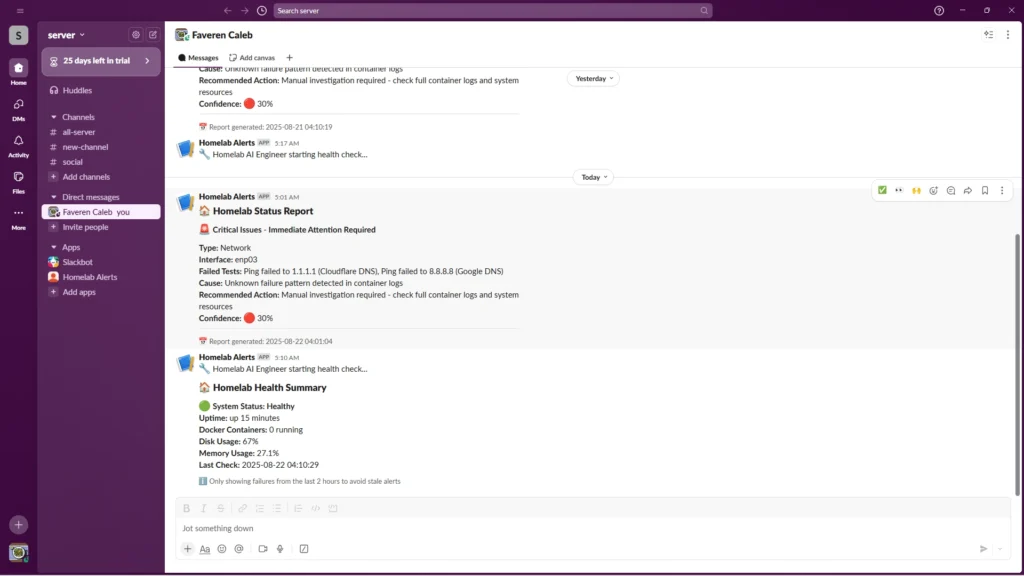
Homelab Report in Slack
The script is designed to be quiet when no issue is detected. It only sends Slack messages when:
- Problems are detected
- Weekly scheduled report (Sundays at 9 AM)
- Every 2 hours if no recent summary was sent
Slack Notifications Schedule: Issue-Based Alerts (whenever problems are detected):
- Critical issues: Immediate Slack alert
- Warnings: Immediate Slack alert
- Auto-fixes: Immediate Slack alert when applied



